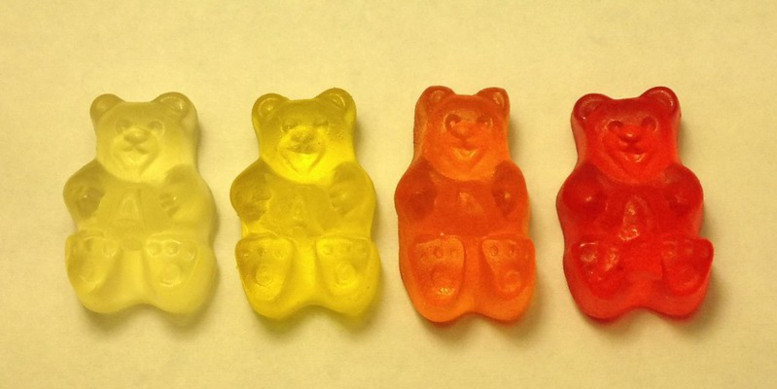[Editor’s note: This story was updated to correct an earlier version published Monday, June 27]
Delta-8 THC products will no longer be available in Oregon after a state law passed last year that directed the Oregon Liquor and Cannabis Commission (“OLCC”) to adopt rules placing limits on the sale of semi-synthetic derivatives of hemp and marijuana in the state.
The rules, which were adopted in December 2021 and become effective this Friday, July 1, make Oregon the first state in the U.S. to order removal of such synthetic cannabinoids from grocery stores and all other retail outlets. Delta-8 products come in such forms as vape liquids, tinctures and extracts, gummies, candies, cookies and drinks.
Lesser known than delta-9 THC most commonly derived from marijuana plants, delta-8 THC naturally occurs in cannabis but only in trace amounts. But producers have been turning out products with higher concentrations of delta-8 THC, which purportedly gives a milder “high,” by putting hemp-derived CBD through a synthetic process.
Oregon regulators say they’re restricting sale of the products – widely available on the gray market – over concerns about the chemicals used in production.
Looking for rules
The federal government and states throughout the U.S. have been grappling with laws and regulations for delta-8 THC. Some are treating it the same as delta-9 products while others, like Oregon, have banned or are considering bans.
Delta-8 THC is unregulated by the U.S. Drug Enforcement Administration and has therefore fallen into a legal gray area.
The U.S. Court of Appeals for the Ninth Circuit last month ruled in a California case that hemp-derived delta-8 THC is legal under the 2018 Farm Bill. The appeals court found that the Farm Bill’s definition of legal hemp expressly applies to all downstream products so long as they do not cross the 0.3% delta-9 THC federal limit.
Regulators and even some hemp stakeholders have called that interpretation of the Farm Bill too literal, suggesting the measure, which legalized hemp federally, never intended it to be used for products that can be classified as psychoactive, and because delta-8 THC is not derived from the hemp plant in a natural manner.
Quality questions
Florida officials issued warnings last year regarding delta-8 THC and other industrial hemp products from Oregon. The Florida Department of Agriculture and Consumer Services said the warnings went out after the agency received queries and complaints about the products.
Also, the Centers for Disease Control reported last year that there had been more than 100 delta-8 exposures nationwide that required hospitalization over a six-month period.
Producers have also been cited by the U.S. Food and Drug Administration (FDA) for questionable claims that delta-8 products treat or alleviate the side effects related to a wide variety of diseases or medical disorders, and because packaging used by some producers may appeal to children. FDA in May warned five companies over such claims, saying the marketing practices are illegal.
Producers of CBD have aggressively been pushing the hemp-derived compound as a delta-8 THC source, especially in light of a continuing glut on the CBD hemp biomass market; with prices for biomass and downstream CBD products such as isolates and extracts a mere fraction of what they were at the height of the CBD craze, delta-8 makers have been receptive.

